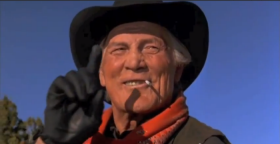Means of Production –
Henry Ford perfected the factory and the assembly line inside of it, which together formed the primary means of production in the industrial economy. While the assembly line and factory did much to advance the nation as a whole, and significantly line the pockets of a few, it has done a great deal of damage to “the masses.”
Henry Ford’s factory/assembly line production model dictates which roles, responsibilities and skills are important, and which are not. Overall, I believe what this model implies about the value of “average” people,
ultimately resulted in a much greater negative influence in our society than it has for good; and, perhaps has precipitated some of the deep rooted economic and societal issues we are struggling with today in this nation and around the world.
Hands not Brains
Henry Ford is quoted as saying, “Why is it every time I ask for a pair of hands, they come with a brain attached?” In Henry Ford’s system, people are only as valuable as the simple, repetitive task that they can perform. They are interchangeable, nameless and faceless. The industrial economy has no use for uniquely created masterpieces made in the image of God; what he needs are robots without brains, without personalities, feelings, dreams and desires.
Certainly devaluing most of society and relegating them to a mindless, innovation- and creativity-free existence is a bad thing, but we have another, more pressing issue with running our organizations and societies on industrial economy principles – we are quickly moving into a post-industrial society, where uniqueness, individuality, entrepreneurship and specialty will rule the day.
Post-industrial Fallout
The skills, abilities and motivations that prepare someone for a life-long journey in the industrial economy are completely inadequate for preparing someone to be successful in the post-industrial, connection-based economy that we have been moving into for the last several years. The good news is that it is not too late to opt out of the old system and jump into a new system. It will require a complete paradigm shift, and the onboarding of new systems and processes that value the individual over the task.
| Would you like to learn more? – Read this short story excerpt taken from Set Godin’s eBook titled, Stop Stealing Dreams | |
| Read the full article about the importance of honestly assessing your leadership effectiveness. |






